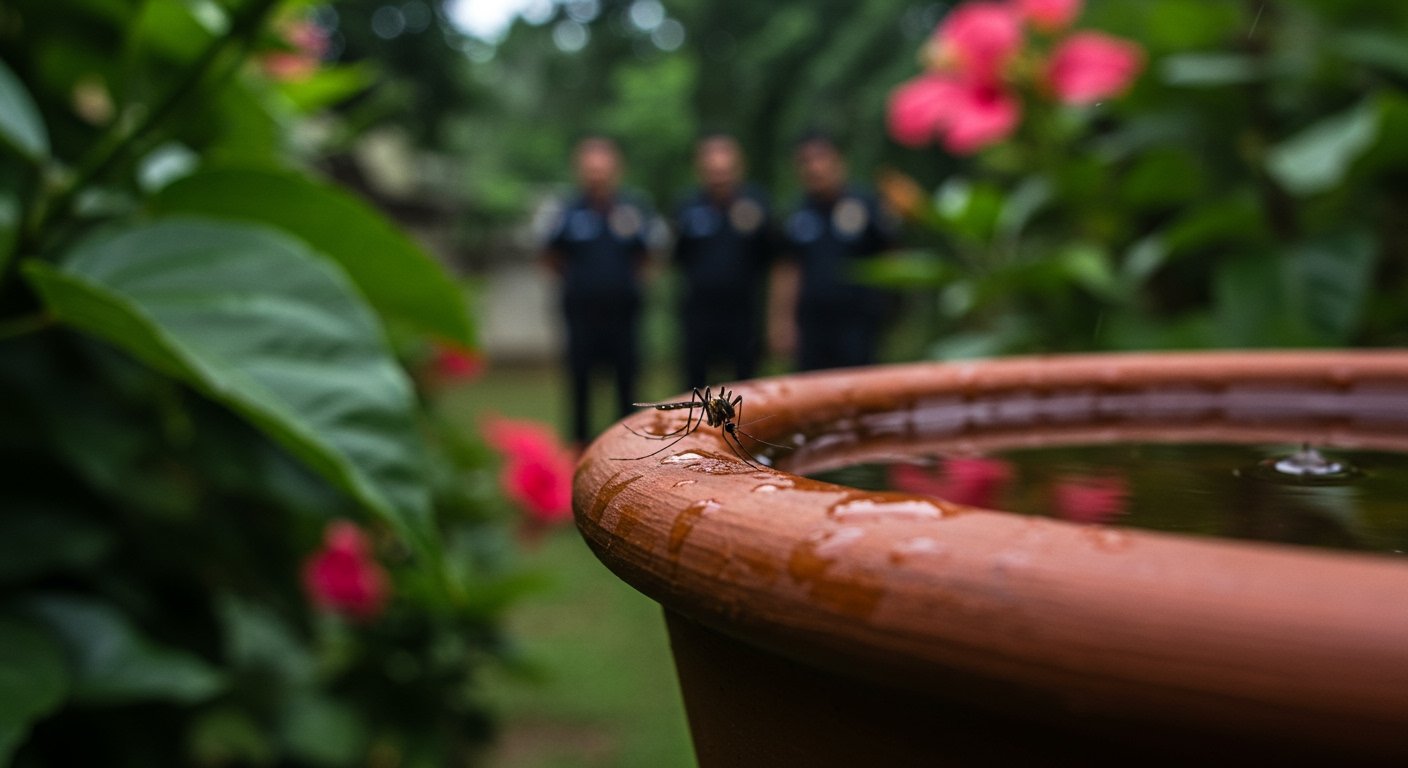HONOLULU, Hawaiʻi – The Hawai’i Department of Health (DOH) has announced the confirmation of a new travel-related case of the dengue virus on Oʻahu. This latest identification brings the total number of dengue cases reported across the state of Hawai’i in 2025 to nine.
The confirmed cases are distributed across the islands, with eight cases identified on Oʻahu and one case reported on Maui. All nine cases recorded thus far in 2025 have been determined to be travel-related, meaning the individuals are believed to have contracted the virus while visiting regions where dengue is prevalent before returning to Hawaiʻi.
Understanding the Source and Transmission
The DOH has emphasized that the dengue virus is not currently considered endemic in Hawaiʻi. Transmission occurs exclusively through the bite of a mosquito that has previously bitten an infected person. The virus is not spread directly from person to person. The fact that all nine cases in 2025 are linked to travel underscores the primary pathway for the virus entering the state.
The individual in the newly confirmed ninth case is understood to have likely acquired the infection during travel abroad in an area recognized for ongoing dengue transmission.
Public Health Response Measures Underway
In response to the confirmed case on Oʻahu, the Hawai’i DOH has swiftly initiated established public health protocols. Teams have been dispatched to the specific area on Oʻahu where the affected individual resides or spent time while potentially infectious to mosquitoes. These teams are conducting thorough inspections aimed at identifying and eliminating potential mosquito breeding sites.
Crucially, they are also implementing targeted mosquito control measures in the vicinity. The primary objective of these actions is to prevent the potential for local transmission. If an infected person is bitten by a local mosquito, that mosquito can then transmit the virus to other people it bites, potentially leading to a cluster of cases acquired within Hawaiʻi.
Global Context of Dengue Risk
Dengue fever is a significant public health concern globally, particularly in tropical and subtropical climates where the Aedes species of mosquitoes that transmit the virus are common. The DOH highlights that dengue is a year-round risk in numerous regions around the world.
These areas include, but are not limited to, parts of Central and South America, large swathes of Asia (including the Republic of the Philippines), the Middle East, and Africa. The virus is also prevalent in several Pacific Islands, such as American Samoa, the Federated States of Micronesia, the Republic of the Marshall Islands, and the Republic of Palau.
Travelers visiting these regions are at risk of contracting dengue and are advised to take precautions to avoid mosquito bites both during their trip and upon returning home, especially during the period when they might still be infectious if they have been exposed.
Preventing Local Spread in Hawaiʻi
The Hawai’i DOH is strongly advising residents and visitors alike to take proactive steps to prevent the potential for local transmission of dengue within the islands. The cornerstone of this prevention strategy involves reducing mosquito populations and avoiding mosquito bites.
Recommended best practices include eliminating standing water around homes and properties, as standing water in containers as small as a bottle cap can serve as a breeding ground for Aedes mosquitoes. Using mosquito repellent containing DEET, picaridin, oil of lemon eucalyptus, or IR3535 when outdoors, particularly during peak mosquito activity times (dawn and dusk), is also highly recommended.
Ensuring window and door screens are intact can help prevent mosquitoes from entering indoor spaces. While dengue is not spreading locally in Hawaiʻi at this time – as evidenced by all nine 2025 cases being travel-related – maintaining vigilance and adhering to these preventative measures are essential to keeping the virus from establishing a foothold in the state.
The DOH continues to monitor the situation closely and emphasizes the importance of public cooperation in implementing mosquito control measures. By taking these simple steps, individuals can play a vital role in protecting themselves and their communities from vector-borne illnesses like dengue fever.



















